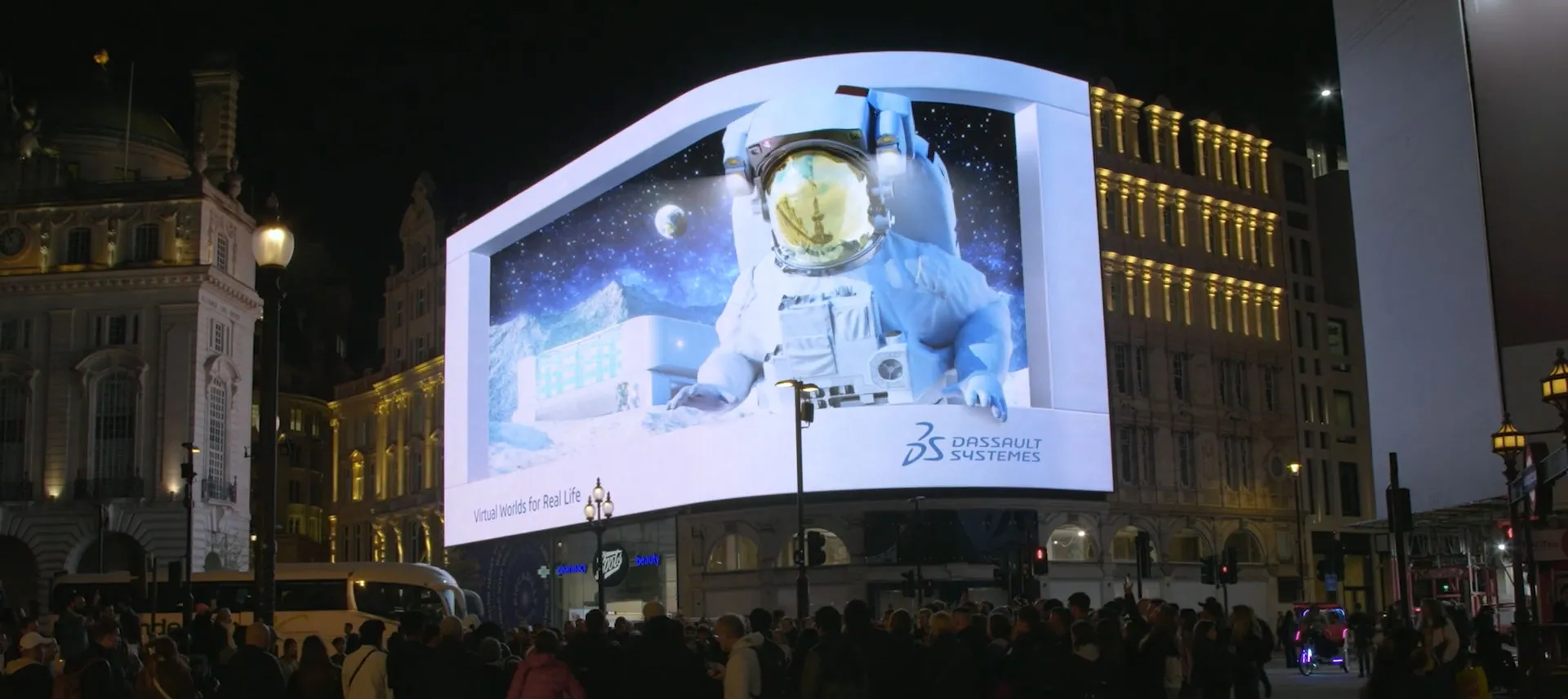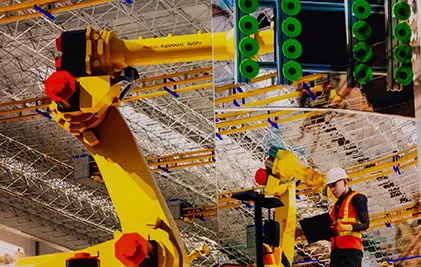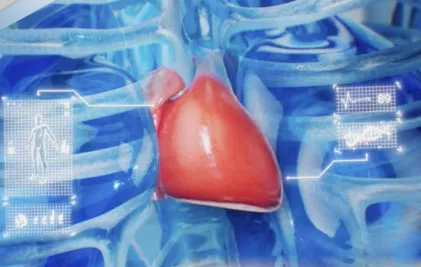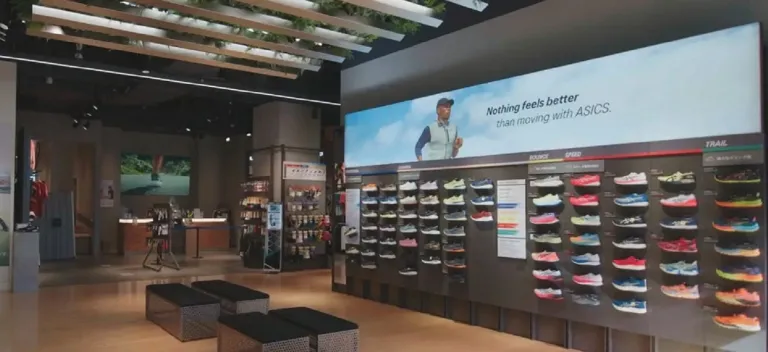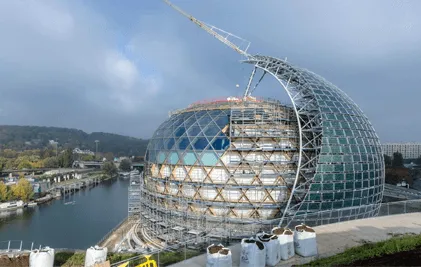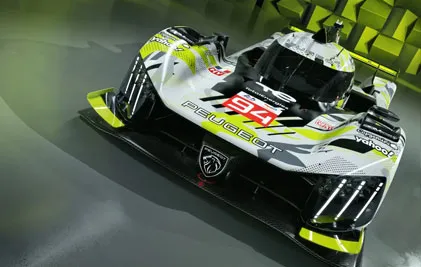Virtual Twin Experiences
Driving the transition to a sustainable, generative economy with science-based virtual twins.
How Virtual Twins are Transforming the Future of Digital Twins?
A virtual twin goes beyond a digital twin by not only mirroring physical objects but also simulating their behavior and evolution in real-time.
A virtual twin represents the full lifecycle, behavior and evolution of a product or system, starting with a 3D model that captures the shape, dimensions and properties of a physical object. By running simulations, a virtual twin optimizes design, materials and processes, while documenting decisions for traceability.
Virtual twins gain power over time, by incorporating operational data, performance metrics and maintenance records, evolving alongside the physical product to reflect its ‘as-designed,’ ‘as-made’ and ‘as-used’ states. This real-time simulation provides predictive insights that enhance decision-making while unlocking new opportunities for sustainable innovation.
Virtual twins also interact with one another to enable system-level simulations—such as a shampoo bottle's journey through production, packaging, shipment and eventual use by a consumer.
By taking a holistic approach that spans from design to operation to end life creates a comprehensive digital counterpart to the real-world product or system.
In order to generate and protect the most valuable intellectual property, it is of critical importance to create Virtual Twin Experiences of everything for everyone that harmonize product, nature and life.
Virtual Worlds for Real Life
Almost everything around you is enabled in some way by Dassault Systèmes.
Virtual twins are everywhere, for everything. They help simulate, optimize and innovate sustainably across every stage of a product or processes lifecycle, transforming Manufacturing Industries, Life Sciences & Healthcare and Infrastructure & Cities.
Virtual twins bridge the physical and digital. This is how virtual worlds improve real life.
Manufacturing Industries
Producing better, more sustainable products and processes with virtual twin technology.
Life Sciences & Healthcare
Advancing patient care, research and medical innovation with virtual twin technology.
Infrastructure & Cities
Boosting sustainable urban transformation with virtual twin technology.
Virtual Twins for a Sustainable Future
Virtual twins are powerful tools for advancing sustainability, empowering industries to design, simulate and optimize innovative solutions that harmonize efficiency, innovation and environmental responsibility for a more sustainable future.
How Do Our Customers Use Virtual Twins to Drive Innovation?
The benefits of virtual twin experiences aren't exclusive to large OEMs or specialized tech companies. Dassault Systèmes empowers a wide range of clients to explore and innovate within the virtual world. Here are five examples.
ASICS
Creating personalized footwear requires transforming biomechanical data into actionable insights. ASICS leverages advanced simulation and analysis tools to design custom shoes that enhance performance, optimize comfort and meet the unique needs of each individual.
Saint-Louis Hospital
Saint-Louis Hospital in Paris leveraged Virtual Twin as a Service (VTaaS) to trace airborne pathogens in its dialysis unit, simulate airflow, and optimize ventilation, improving air quality and reducing infection risks for vulnerable patients and staff.
Bouygues Construction
Reducing the urban environmental impact while covering the actual needs of citizens is Bouygues Construction's mission. New low-carbon construction models are reshaping building and city design, implementation and operation.
Hallberg-Rassy
To create sailing yachts that balance heritage, comfort and performance, Hallberg-Rassy combines traditional craftsmanship with virtual twin technology on the 3DEXPERIENCE platform to design and optimize every detail in a single collaborative environment.
Peugeot Sport
Developing a hybrid hypercar requires pushing innovation to its limits. Peugeot Sport does this by combining advanced aerodynamics, lightweight materials and hybrid technology, all perfected through virtual twin simulations.
Unlocking Potential with Virtual Twin Technology
Enhance performance, sustainability and decision-making with virtual twin experience.
Performance Optimization
A virtual twin allows for simulating and testing options in a virtual environment, identifying potential improvements and optimizing the performance of products and systems.
Sustainable Innovation
By enabling modeling and analysis of products and processes, virtual twins support the designing of more sustainable solutions, reducing both environmental impacts and costs throughout the lifecycle.
Informed Decision-Making
Through real-time, accurate simulations, virtual twins help businesses make better-informed decisions, anticipate potential challenges and adjust strategies before a product or process is in the real world.
We're More Than a Software Provider
Dassault Systèmes solutions bridge the virtual and real worlds through the 3DEXPERIENCE platform. Our virtual twin technologies help businesses, consumers, patients and citizens address major sustainability challenges and drive innovation by:
- Designing innovative, visionary models and products
- Accelerating cross-team collaboration and managing product creation from planning to final release, including all developmental milestones
- Using digital twin simulations to assess performance, reliability and safety during the design process
- Leveraging data to optimize decisions, improve efficiency and ensure real-time insights across the entire lifecycle
A virtual twin is both a digital replica of a product itself and of its history and evolution. Virtual twins are available to support any industry, for any need.
Showcasing the Power of Virtual Twins Across Your Industry Value Chain
Discover the power of virtual twins! Explore their potential to transform your processes, drive innovation and address your most critical business challenges.
Virtual Twin as a Service
Virtual Twin as a Service (VTaaS) delivers the full value of virtual twins with our experts by your side.
We start by understanding your challenges, then build and operate tailored virtual twins for anything from optimizing data centers to enhancing aircraft maintenance—delivering fast insights, smarter decisions and value on time, within budget and free of risk.
Curious about Virtual Twins? Find answers in our FAQ.
You Might Want to Explore...
About our company
We’re in the business of innovation. Through our unique solutions, we bring virtual twin experiences to everyone – including you!
3DEXPERIENCE platform
Bring together all aspects of your business in a single platform to increase collaboration, improve execution and accelerate innovation.
Online store
Kick-start your design journey in a cloud-based collaborative space to foster innovation from day one.
Contact sales
Have a Dassault Systèmes expert contact you to answer your questions and discuss any of your needs.
